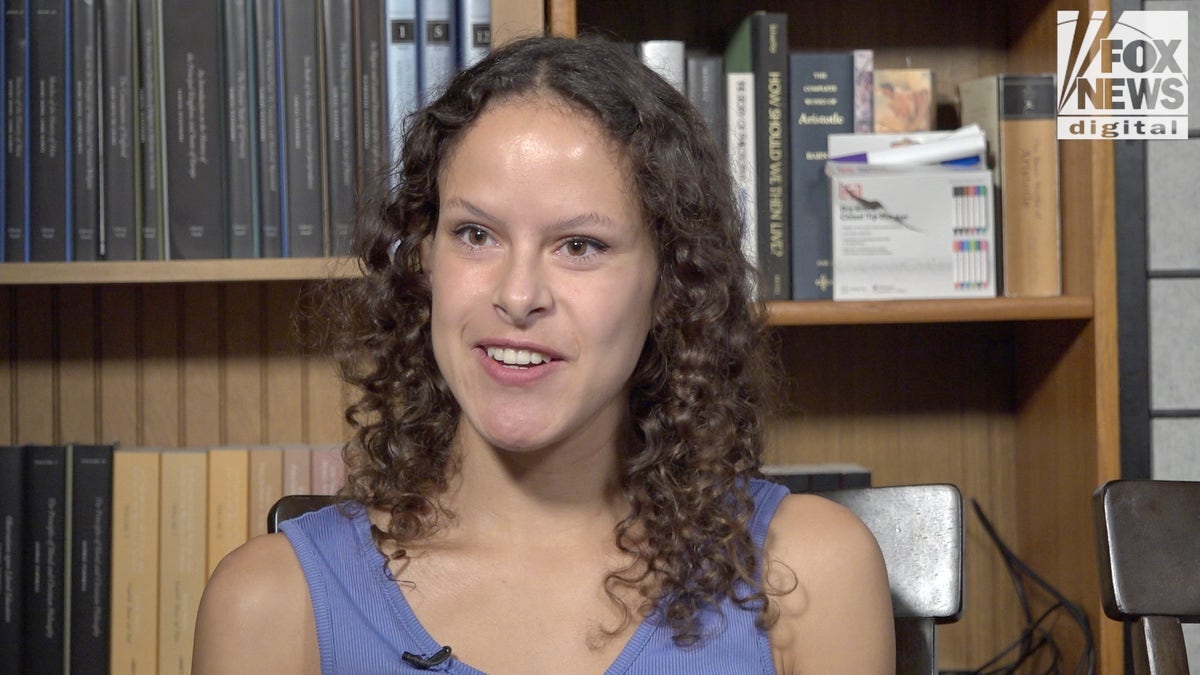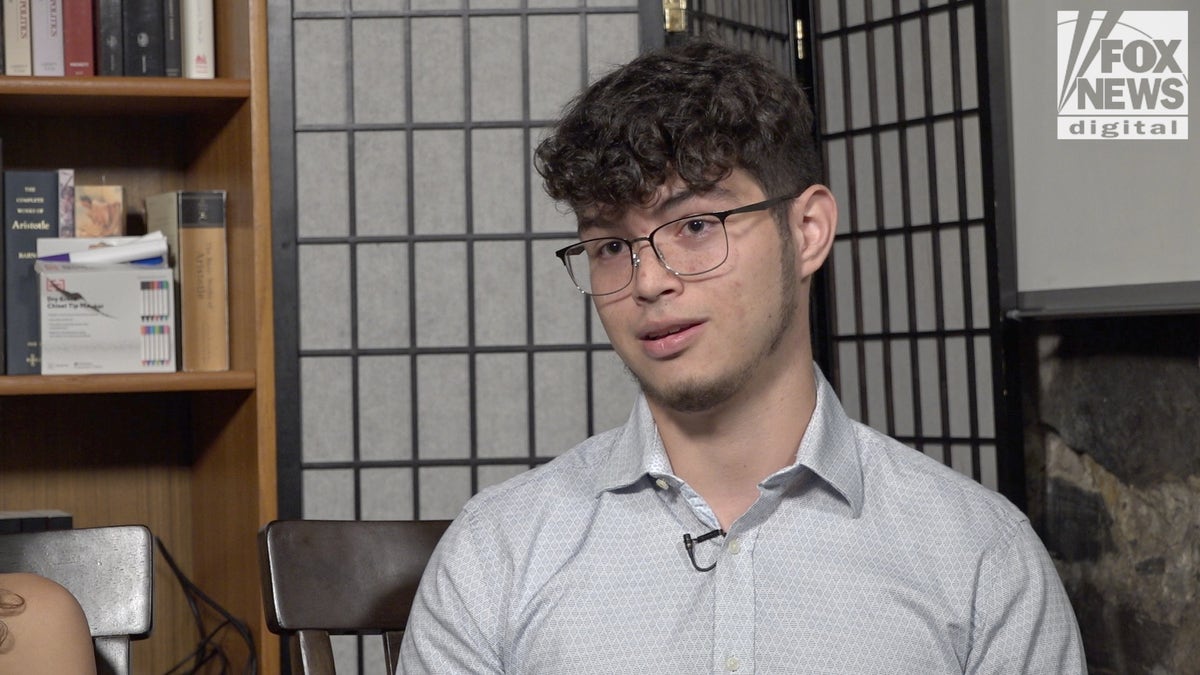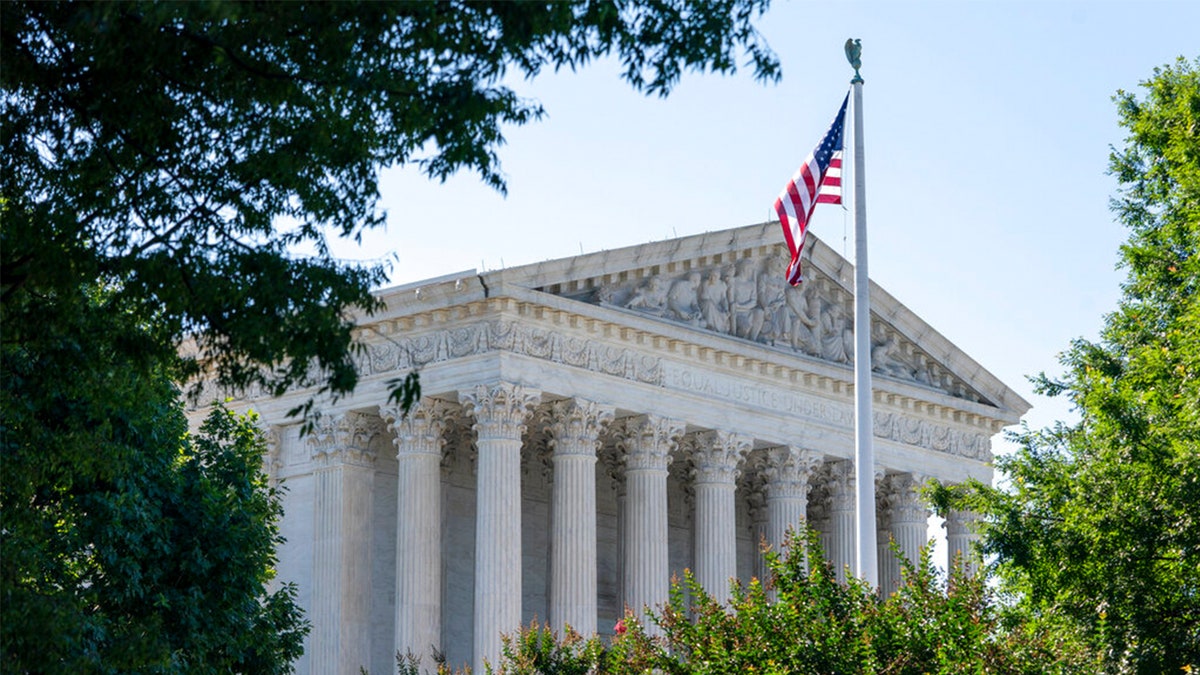Race-based college admissions? Two Harvard Students seek common ground
Two Harvard University students on opposing sides of the affirmative action debate discussed where to find common ground ahead of the Supreme Court's decision.
CAMBRIDGE, Mass. – Two Harvard University students on opposing sides of the affirmative action debate agreed that regardless of how the Supreme Court rules on race-based admissions, there's a path forward to make the application process fairer.
"I think at the end of the day, we both want the most fair admissions policy possible," said Joseph Hernandez, a second-year student from California who supports affirmative action. "I think we can both agree that income needs to be taken into account as a factor."
TWO HARVARD STUDENTS FIND COMMON GROUND IN THE DEBATE OVER AFFIRMATIVE ACTION. WATCH:
WATCH MORE FOX NEWS DIGITAL ORIGINALS HERE
Alma Conway, a third-year student from Arizona who opposes affirmative action, agreed.

Conway, who recently ended her third year at Harvard, opposes affirmative action. She says the Supreme Court ruling to overturn race-based college admissions would be a step in the right direction after initial protests start to settle. (Megan Myers/Fox News Digital)
RACE-BASED ADMISSIONS? TWO HARVARD STUDENTS DEBATE AHEAD OF SUPREME COURT DECISION
"I do think factoring income is kind of worth considering," Conway said. "Maybe it should be taken into consideration to an extent, but just to what extent is that?"
The Supreme Court this week is expected to rule on two cases that could determine the fate of affirmative action in college admissions after a 40-year precedent.
WATCH TWO HARVARD STUDENTS DETAIL ARGUMENTS OVER RACE-BASED ADMISSIONS:
"I think that if the court decides to remove it, it will be a step in the right direction," Conway said. "Maybe the benefits won't be seen immediately because there will be protests and students will be upset, but hopefully in the long run it's looking at race less, which I think should be the goal."
But Hernandez felt race is "a factor that determines people's opportunity and as such should be taken into account when we look at admissions."
In one case, Students for Fair Admissions argued that Harvard discriminated against Asian American students by holding them to higher admissions standards in academics than other racial groups, violating the Civil Rights Act. In the other, the same student group alleged that the University of North Carolina-Chapel Hill used race as a primary factor in admissions to favor Black, Hispanic and Native American applicants and accused the college of violating the 14th Amendment.
Both colleges said race was just one of many factors used in their admissions processes and denied breaking any laws.

Hernandez says that while considering income is important in college admissions, it is not a viable replacement for affirmative action. He says low-income students and students of color are both disadvantaged by the American education system and hopes the Supreme Court will not overturn race-based college admissions. (Megan Myers/Fox News Digital )
"I hope that even if anyone disagrees with me on the subject of race in admissions, they're really thinking about how can we make admissions as fair as possible," Hernandez said. "There are some very clear issues in admissions, regardless of where you stand on affirmative action."
Legal experts previously told Fox News the Supreme Court conservative majority seemed likely to ban affirmative action in college admissions based on their comments during October's oral arguments. Yet 63% of adults said the court shouldn't ban colleges from considering race or ethnicity, an Associated Press-NORC Center for Public Affairs Research poll found in May.
"If the decision ultimately overturns affirmative action, accounting for socioeconomic status but not race will likely be the best option we'll have left — but that doesn't make it a fair admissions system," Hernandez told Fox News. "We can find common ground in the common goal of fair admissions. Where we disagree is what that looks like."
Conway said "both sides are well-intentioned."
"One wants previously underrepresented communities to now shine and others want representation on basis of merit, not solely selecting or promoting on basis of race," she said.
Critics have argued that affirmative action encourages discrimination and prioritizes race over merit. But supporters, including many colleges, have said racial diversity benefits all students and that affirmative action has helped offer more opportunities to minority students who have less access to educational advantages like tutors.

The Supreme Court this week is expected to release a few blockbuster decisions, including the fate over affirmative action. (AP Photo/Jacquelyn Martin)
"There are some other aspects that I think we may not always agree on, but I think that at the end of the day, we want the whole picture of the person," Hernandez said. "There are many things about that that make up what a person is."
CLICK HERE TO GET THE FOX NEWS APP
Conway agreed that there are many factors that show who a student is that are worth keeping as considerations in college admissions, including extracurricular activities, leadership roles and prior jobs. The two Harvard students were firm on their affirmative action positions, but agreed there was room for civil discussion on other ways to ensure a fair admissions process.
"If you can agree with someone on a lot of stuff, they're a friend more than a foe," Conway said.
To watch the Harvard students' discussion on affirmative action, click here.












































